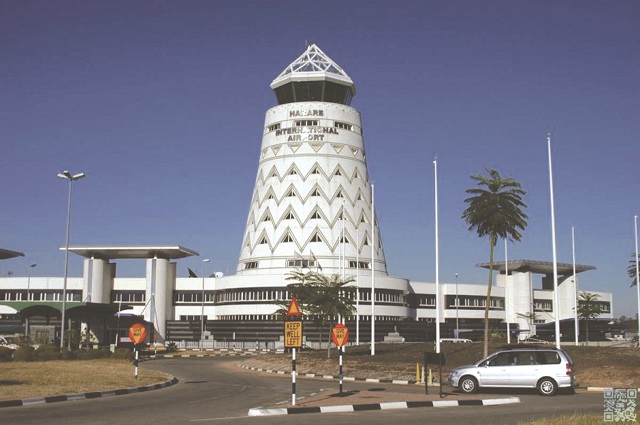
The Sunday News

 Harare International Airport. African Union’s Agenda 2063 calls for visa-free travel by all Africans in Africa by 2018
Harare International Airport. African Union’s Agenda 2063 calls for visa-free travel by all Africans in Africa by 2018Mandla Lionel Isaacs
FREE movement is back on the continent’s policy agenda and within its integration discourse.
Such discourse has also been buttressed by several encouraging developments over the last year or so, notably the launch in early 2016 of a new Africa Visa Openness Report; the move by several African countries to offer visas on arrival to citizens of AU member states; and the July 2016 launch of the African passport.
Underpinning all of these developments, and particularly the launch of the African passport, is the African Union’s Agenda 2063, which calls for visa-free travel by all Africans in Africa by 2018. These are encouraging developments which move us closer to the point when Africans move as freely across the continent as European Union citizens move across Europe, and American citizens move across the United States.
Unfortunately, though, wanting free movement is not enough to make it happen. Regional integration in Africa has long been an extraordinarily promising and frustrating policy area. Promising, because most experts and policymakers agree that integration will yield enormous economic and social benefits for African countries and citizens.
Frustrating, because despite treaties, agreements and public statements of support by African leaders over the decades, real progress towards regional and continental common markets in which people, goods, services and capital move freely, has been slow and is incomplete.
Accordingly, I would like to make four suggestions on how to advance progress on free movement in Africa.
In general, democratic countries impose visa requirements on citizens of other countries for two main reasons: risk of overstaying, and security concerns (organised crime, terrorism, persona non grata).
Based on my experience in international migration management, I would also add assessment of whether a source country’s citizenship system is secure, identity and travel documents are difficult to obtain fraudulently, and whether she is able and willing to identify its citizens in the event that they overstay, commit crime or are involved in an accident or in an emergency.
These are the main substantive reasons why countries require visas of other countries, and they are unlikely to lift visa requirements if they are not addressed.
There are two broad ways to address these issues. We can address them on the source country side, by improving the maturity of their civil registration and law enforcement capabilities. Alternatively, we can address them on the destination side, by finding ways to mitigate risks and issues in source countries, such as through sophisticated information sharing to identify high-risk prospective travellers, and trusted traveller programmes.
Free movement encompasses three types of freedoms: visa-free entry for short visits; right of residence, including the ability to work; and the right of establishment, the ability to sell services or establish a business without discrimination based on nationality.
The Abuja Treaty of 1991 envisioned that Africa’s regional economic communities (RECs) would establish common markets which would form the basis of a future continent-wide common market. What is important here is less the focus on which blocs will integrate first, but rather the link with the common market.
In my view, free movement is too often discussed in isolation, and is unlikely to be solved outside of economic integration more broadly. In other words, where free movement is stalled, it may well be because economic integration is stalled. It is also impractical for countries to draft, agree and ratify complicated agreements on labour mobility with countries with whom they do not have free trade agreements or common market arrangements. For this reason, developments in the Tripartite Free Trade Area (TFTA) and the Continental Free Trade Area (CFTA) negotiations, particularly on the free movement of people are worth following closely. — All Africa



